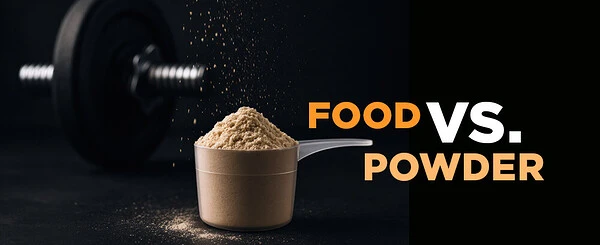Title: Protein Supplements vs. Whole - Food Protein Sources: A Scientific Analysis
Author: Chris Shugart
Some individuals assert that protein supplements are less effective than whole - food protein sources. However, what does scientific evidence suggest? Let's explore.
Based on numerous studies previously covered on T Nation, the following are the known aspects regarding higher - protein diets:
A fat - loss diet with a higher protein content results in more fat loss and better muscle preservation compared to a lower - protein diet, even when the overall calorie intake of both diet plans is identical.
A diet higher in protein leads to greater muscle gain than a lower - protein diet, again, with the same calorie level maintained.
A higher - protein diet is associated with less belly fat compared to a lower - protein plan, even if the calorie amounts in both diets are the same.
Protein is the most satiating (filling) among the three macronutrients. Thus, a high - protein fat - loss plan is less likely to cause cravings compared to a low - protein diet plan.
It is rather difficult for the body to convert protein into body fat, even in large quantities. If a significant portion of the diet consists of protein, one can consume more food while still losing fat.
Increasing protein intake above the commonly recommended levels enhances protein synthesis, lean body mass, postprandial thermogenesis, and cardiometabolic health.
All these findings are remarkable. But is there a distinction between whole - food protein sources and protein powders? Science has delved into this matter.
The Study
Researcher Paul Arciero and his team conducted a prior study. They assigned two groups of people to a diet plan. Both groups consumed the same number of calories and engaged in the same workouts. However, one group ate 3 larger meals per day, while the other group had 6 smaller meals per day, with half of those meals being protein powder. In summary, the group with more frequent meals demonstrated better improvements in body composition - more muscle and less fat - compared to the "three - square - meals - a - day" group.
Yet, the researchers aimed to take this research a step further. How would 6 solid meals per day compare to 3 solid meals and 3 protein shakes?
They placed two groups of overweight but otherwise healthy individuals on a relatively high - protein diet, at least "high" for the general population: 1.4 g/kg of body weight. Both groups practiced "protein pacing" for 16 weeks, which meant they had 5 - 6 feedings per day. One group consumed half of their meals in the form of whey protein. Both groups carried out the same workouts, mainly weights and cardio.
The Result
Both groups improved their body compositions and physical performance. The group that had 3 meals from protein powder achieved similar improvements as the group consuming only whole - food. In essence, a whey protein supplement is as effective as solid - food protein sources in enhancing body composition and performance.
Analysis
This answers the question: "Is protein powder as effective as whole food in terms of improving body composition and performance?" The answer is yes.
Since most bodybuilders and weightlifters consume multiple meals per day, using protein shakes to supplement some of those meals is quick and convenient. And now, we know that it is at least as effective as whole foods for fat loss or muscle gain. So, those who oppose the use of protein supplements can be reassured.
The researchers chose whey protein because it has been shown to be superior to soy protein, pea protein, and other types. But what about high - quality micellar casein or a blend of whey and casein?
Micellar casein is digested more slowly than whey and has a distinct advantage due to its ability to enhance nitrogen retention. (Increased nitrogen retention is crucial for muscle performance.) In other words, casein is generally a better muscle - building and fat - burning agent compared to regular whey. Intact micelles result in a gradual release of amino acids and higher concentrations of leucine in the bloodstream. Additionally, micellar casein has anticatabolic properties.
Although the scientists in this study did not investigate the effects of micellar casein or a casein/whey blend (available for purchase on Amazon), it can be hypothesized that if these had been used, the protein - supplementing group might have outperformed the group relying solely on whole - food.
Reference
- Arciero PJ et al. "Protein - Pacing from Food or Supplementation Improves Physical Performance in Overweight Men and Women: The PRISE 2 Study." Nutrients. 2016 May 11;8(5):288. PubMed: 27187451.
Whole Foods vs. Protein Powders
•
Author: Flint
•
fitness
sport
life

Share this article
